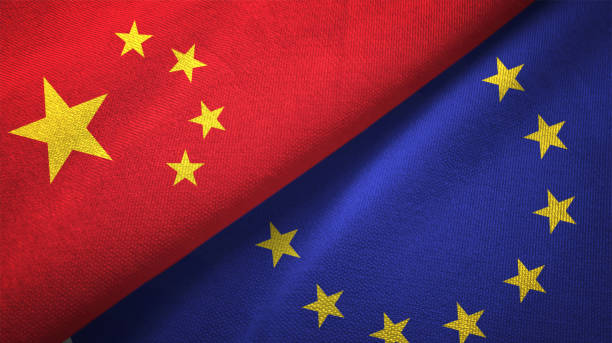
As the largest emitter of greenhouse gas, it is crucial that China and the EU work together to speed up green growth initiatives globally to help address the ongoing climate change crisis. Underneath it all lies historical geopolitical rivalries and competitive economies. Still, the existential threat of the impending environmental disaster that we are facing should prompt urgent climate cooperation.
Fortunately, some of the necessary foundations for such cooperation are already created. In 2020 they initialled the historic EU-China Comprehensive Agreement on Investment that included binding bilateral emission reduction commitments, green technology research collaboration through multiple avenues, as well as specific investment growth corridors. Furthermore, some EU member states including Germany, France and Denmark also have bilateral clean energy partnerships on the national level with China pointing towards workable modalities of cooperation.
On the other hand, the magnitude of the climate crisis requires that both sides adopt a stronger mutual emphasis on zero carbon emissions by this is where the EU can provide assistance to the world’s leading manufacturing country in transforming its heavily coal-dependent grid systems and carbon-based supply chains with the knowledge it has gained in ethically governing emissions trading regimes, establishing energy efficient regulatory standards and quantifiable sustainable finance.
In exchange, it deploys huge simultaneous state-private investments into sprouting cleantech sectors, quick productization settings for maturing carbon mitigation options from EV transport via eco-hydrogen up towards eventual cost savings at industrial scale across photovoltaics, wind.
Nevertheless, the size of the climate crisis requires an enhanced coordinated focus on urgent decarbonization in each sector in 2020s. This presents an open slot for the EU’s first aid in matters concerning ethically governable emissions trading schemes, energy efficiency regulatory requirements and performance-driven sustainability financing, whose development will be crucial to wean off massively coalfired national power systems as well as carbon-based trade chain
China provides massive, synchronized public-private investment capabilities in developing renewables industries, rapid commercialisation for facilitating scaling of nascent decarbonisation solutions including e-mobility to hydrogen, and ultimately giant economies scales on solar, wind and other technologies that are going into the mainstream adoption.
Sceptics will definitely say that China’s promises are mostly illusive, and Western intellectual property vulnerabilities do not lead into meaningful collaboration. However, it is in this issue that the EU should indicate clear conditions on the transparency, results audits and their executability which will give them an upper hand during a tough negotiation process.
This fact necessitates unparalleled collaboration between the world’s largest traders despite a geopolitics competition taking place. A new life should be injected into the renewal of the working groups of the Comprehensive Agreement. Effectively, by swapping technical knowledge with China, and initiating “friendly competition” the EU may be pivotal in forcing global emissions down this decade. In view of the escalating global weather challenge each passing year, our mutual objective ought to entail igniting a fast track towards mutually profitable ecologically friendly development ensuring the survival of the joint greener future.
In conclusion, with the climate change clock ticking it is providing a chance for the expansion of the EU-China partnership through both public and private capital flows. Vision must correlate with appropriate action and a window of opportunity for addressing climate change. Given this is a high game, then a new partnership era should start immediately with Europe and China.
By The European Institute for International Law and International Relations
References
EU-China cooperation on green recovery and green stimulus. (2020, October 19). https://climate.ec.europa.eu/document/download/76e7ef0b-e360-4454-980a-91f5141dff93_en













